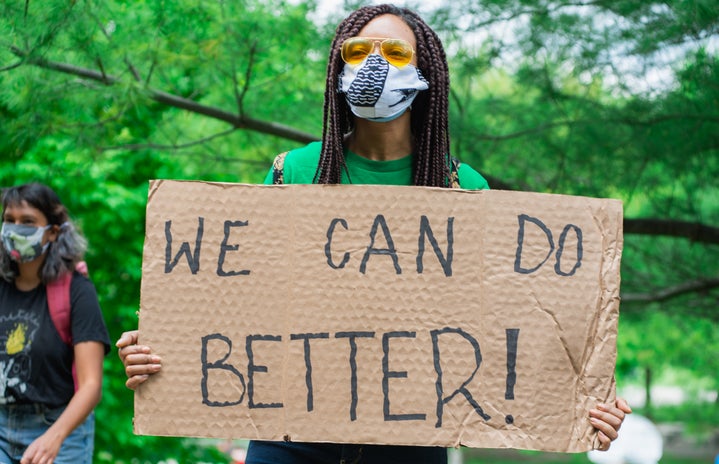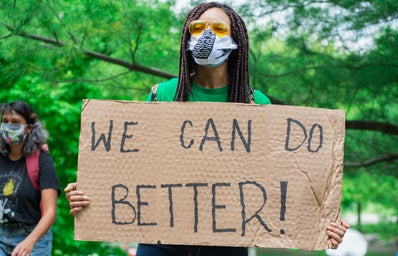Victim-blaming of women in court and the media
In January, mortgage advisor and mother-of-two Nicola Bulley disappeared while walking her dog on a footpath by a river in Lancashire. A media frenzy followed, with Lancashire Police releasing a statement stating that Ms Bulley had previously ‘suffered some significant issues with alcohol’ which resulted in a full independent review.
The significant media attention to Ms Bulley is indicative of victim-blaming. The Sexual Assault Centre of Edmonton describes victim-blaming as ‘questioning people who experience violence… about their actions, and what they could have done to prevent it, or worse, invite it.’ While the exact details of Ms Bulley’s disappearance have not been disclosed to the public, there has been wild, and unwelcome, speculation about what could have caused it. When the police released the statement regarding Ms Bulley’s potential alcohol abuse, they shifted the blame for her disappearance – making Ms Bulley herself responsible by using her past history against her despite it being irrelevant to finding her body.
Women are used to hearing victim-blaming statements when they report crimes. The Independent reported that the main statements are ‘you shouldn’t have been out late’, ‘you shouldn’t have been drinking’, and ‘you’re lucky it wasn’t worse’. Each of these statements highlights problems within our society – time/place, alcohol use and the extent of the damage do not mean that the person who was hurt was responsible for someone else’s actions or a situation in which the person had no control.
In 2021, an exhibition by the ‘Spotlight Initiative’ was held at the United Nations Headquarters in New York named ‘What Were You Wearing?’. The exhibition shone a light on survivors of sexual assault and highlighted the barriers faced by global survivors of sexual violence. The five outfits on display came from each of the five UN Regional Groups (African States, Asia-Pacific States, Eastern European States, Latin American and Caribbean States, Western European and other States) and showed the diversity among the survivors. The outfits consisted of jeans, dresses and tops that were long-sleeved, short-sleeved and low-cut. There were no similarities between the outfits, showing the pervasiveness of the nature of sexual assault.
Historically, women are blamed for their rapes and/or sexual assaults. Convicted repeat sex offender Robert Kelly, known as ‘R. Kelly’, has a considerable history of accusations against him and yet his defence attorney still blamed Kelly’s victims for abusing them. Kelly’s attorney Deveraux Cannick told the jury that Kelly’s accusers were just ‘groupies’ and that they stayed because Kelly supplied the girls and women with expensive dinners and free air travel. The charges of which Kelly was convicted in 2021 were tied to accusations by six people that Kelly confined the girls and women to hotel rooms, dictated what they could eat and forced them to perform sex acts. In this case, Kelly and his lawyers were using victim-blaming to try to disparage the accusers and, according to law professor Aya Gruber of the University of Colorado Boulder, is a common tactic used in sexual violence trials.
This claim is further elaborated by Rebecca Hitchen, operations co-ordinator at Rape Crisis South London, who states that she and her team find that a victim’s sexual history being used in court is ‘common’ and happens at over half the trials they attend with victims. This line of questioning is partnered with questions about their clothing and appearance. A report released in January 2017 by the Fawcett Society researching blame culture against women found that over a third of people believe a victim is to blame if they are sexually assaulted.
As such, Ms Bulley’s case was one drop in an extremely large ocean of misogyny in the media and in public opinion. Following the identification of her body, Ms Bulley’s family criticised media outlets, Sky News and ITV News for contacting them despite their clear request for privacy. Their privacy should be respected, still and this piece does not look to add to the vast speculation. It is instead an acknowledgement of the hardships Ms Bulley’s family have experienced and is a note in the hope that in the future, cases like Ms Bulley’s will be handled with more tact and consideration for loved ones. Victim-blaming has no place in police investigations, nor should major media outlets be reporting from such a standpoint.
Written by: Emily Gee
Edited by: Stephanie Young
Sources cited:
Adams, Char, ‘R. Kelly’s defense used a strategy to prop up famous men and shame female fans’, NBC News (2021), https://www.nbcnews.com/news/nbcblk/r-kellys-defense-used-strategy-prop-famous-men-shame-female-fans-rcna2432.
Connor, Liz, ‘8 victim-blaming statements we’re sick of hearing’, The Independent (2021), https://www.independent.co.uk/life-style/pa-ready-wales-home-office-england-refuge-b1815808.html.
Eleftheriou-Smith, Louella-Mae, ‘Rape victims facing ‘humiliating’ questions about clothing and sexual history during trials, MP reveals’, The Independent (2017), https://www.independent.co.uk/news/uk/crime/rape-sexual-history-assault-cross-examine-trial-court-voices4victims-plaid-cymru-mp-liz-savile-a7570286.html.
Findon, Mary-Kate, ‘Police handling of Nicola Bulley case to be under full independent review’, The Independent (2023), https://www.independent.co.uk/tv/news/nicola-bulley-lancashire-police-independent-review-b2287506.html.
‘‘I will never stop telling my story’: Confronting victim-blaming for sexual assault’, UN News (2022), https://news.un.org/en/story/2022/07/1122832.
‘Rise teams up with Spotlight Initiative to shine a light on survivors of sexual assault in “What Were You Wearing?” exhibit at UN Headquarters’, Spotlight Initiative (2021), https://spotlightinitiative.org/press/rise-teams-spotlight-initiative-shine-light-survivors-sexual-assault-what-were-you-wearing.
Robson, Steve, ‘Nicola Bulley: Police revealed alcohol issues due to ‘people threatening to sell stories’, family say’, iNews (2023), https://inews.co.uk/news/nicola-bulley-family-statement-defending-police-threats-sell-stories-2153826.
Savage, Mark, ‘R. Kelly: The history of his crimes and allegations against him’, BBC News (2023), https://www.bbc.co.uk/news/entertainment-arts-40635526.
‘Sounds Familiar’, Fawcett Society (2017), https://www.fawcettsociety.org.uk/sounds-familiar.
‘Victim Blaming’, SACE (2023), https://www.sace.ca/learn/victim-blaming/.


